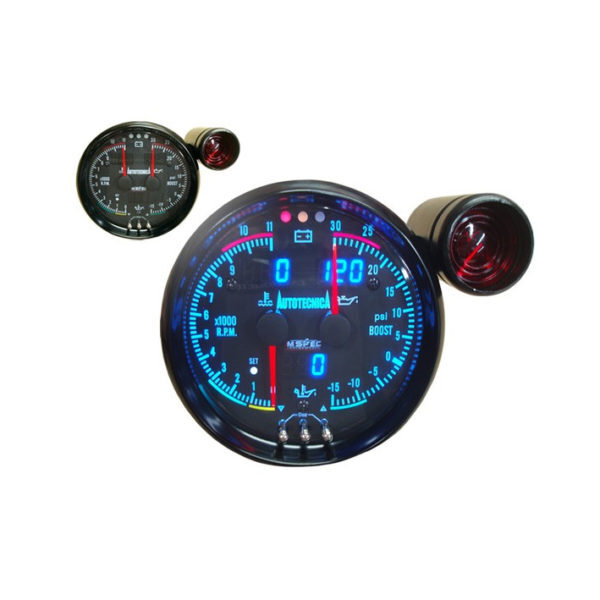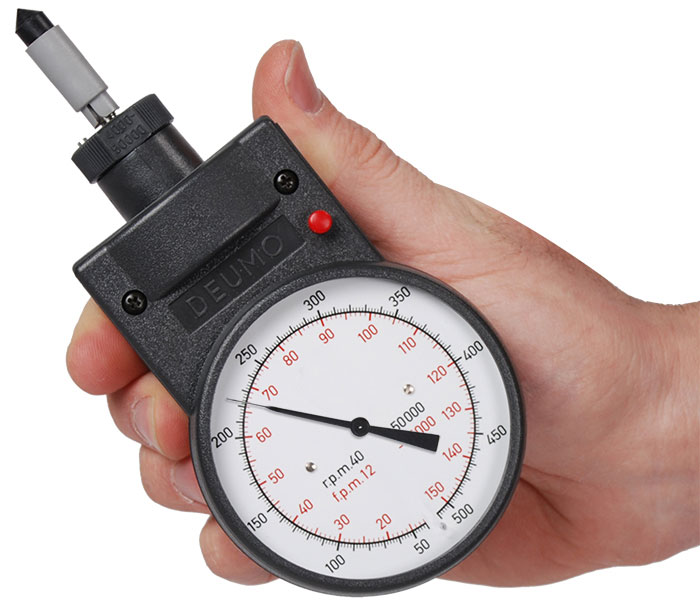Exactly How a Tachometer Helps Monitor Engine Health and Efficiency
Exactly How a Tachometer Helps Monitor Engine Health and Efficiency
Blog Article
Trick Reasons That Having a Tachometer Is Vital for Keeping Engine Health and Effectiveness
In the world of automobile upkeep, the value of a tachometer can not be overstated - tachometer. This simple yet critical instrument plays a critical function in the upkeep of an engine's wellness and efficiency. By supplying real-time information on engine rate and RPM degrees, a tachometer offers vital understandings that straight impact the performance and durability of the engine. From preventing over-revving to enhancing fuel usage, the applications of a tachometer are complex and essential for any car owner or fanatic. Why is this relatively straightforward tool so important? Let's explore the key reasons behind its essential function in keeping engine health and performance.
Protecting Against Engine Over-Revving

To protect the engine from potential damages, it is imperative to apply procedures that avoid over-revving, a practice that can bring about expensive repair work and reduced engine lifespan. Over-revving takes place when the engine's rotational rate surpasses the optimum limit established by the maker, causing excessive tension on inner components such as pistons, valves, and attaching poles. This excessive pressure can lead to mechanical failings, including curved valves, damaged pistons, and even devastating engine failure.
One reliable step to stop over-revving is the setup of a rev limiter. A rev limiter is a device that manages the maximum RPM (transformations per min) of the engine by either cutting off gas flow or stimulate to the engine when the pre-set limit is reached. In addition, enlightening motorists and drivers on the significance of monitoring engine RPM with the tachometer can aid prevent unexpected over-revving. Regular maintenance checks to make certain the engine remains in ideal problem can also help in protecting against over-revving incidents and extending the engine's life-span. By taking on these safety nets, the danger of engine damages as a result of over-revving can be significantly decreased.
Optimizing Fuel Consumption
Efficient fuel consumption plays a vital role in making best use of the performance and sustainability of an engine. tachometer. Maximizing gas consumption not just aids in decreasing operational costs but also minimizes the environmental impact of vehicle discharges. By making use of a tachometer to check engine rate and change driving routines appropriately, chauffeurs can achieve better gas performance
Maintaining a steady rate and avoiding unexpected accelerations and slowdowns can significantly boost gas economic climate. Additionally, appropriate gear selection based upon the tachometer readings ensures that the engine runs within its ideal range, leading to extra effective fuel burning.
Regularly monitoring the tachometer can additionally assist identify any kind of ineffectiveness or mechanical issues that might be affecting fuel consumption. For example, an unexpected rise in fuel use without a matching change in driving behaviors could show a problem that calls for attention.
Surveillance Engine Wellness
Keeping track of engine health and wellness is crucial for ensuring optimal performance and durability of the automobile. By making use of a tachometer to monitor engine speed, drivers can discover irregularities that may suggest prospective problems with the engine. A tachometer supplies real-time information on engine revolutions per minute (RPM), allowing drivers to identify any uncommon spikes or declines in RPM that can signify troubles such as misfires, damaged components, or engine getting too hot.

Regularly monitoring engine wellness via using a tachometer allows chauffeurs to resolve issues promptly prior to they intensify and trigger significant damages. As an example, finding a reduction in RPM could indicate fuel distribution issues or a clogged air filter, while an abrupt boost in RPM may aim to problems with the transmission or exhaust system. By remaining cautious and receptive to adjustments in engine performance, chauffeurs can avoid expensive fixings and ensure the overall health and performance of their car.
Extending Engine Life Expectancy
Ensuring the durability of an engine calls for persistent upkeep practices and alert surveillance of crucial efficiency signs. Extending an engine's life expectancy is essential for minimizing overall car upkeep costs and preventing unanticipated breakdowns. A tachometer plays a considerable duty in this aspect by offering real-time information on engine rate, allowing chauffeurs and technicians to make enlightened decisions to avoid too much damage.

Furthermore, routine maintenance based on tachometer readings, such as prompt oil adjustments and ignition system substitutes, dig this can substantially add to prolonging the engine's longevity. In general, incorporating a tachometer right into regular engine tracking practices is important for preserving the engine's wellness and performance over the lengthy term.
Saving Cash on Services
To successfully handle vehicle upkeep prices and decrease unanticipated break downs, leveraging the insights given by a tachometer can be critical in saving cash on repair services. A tachometer helps in monitoring the engine's RPM (changes per minute), making it possible for chauffeurs to operate within the advised variety. By remaining within these ideal RPM degrees, extreme strain on our website the engine can be stayed clear of, decreasing the chance of expensive fixings as a result of exhausting the engine (tachometer). Additionally, a tachometer can notify drivers to prospective problems such as engine misfires or falling short elements, permitting for early treatment before these problems intensify and lead to a lot more extensive-- and costly-- repairs.
Moreover, by using the data from a tachometer to practice smooth velocity and slowdown, drivers can prolong the life expectancy of their automobile's parts, ultimately saving money on maintenance and substitutes. In general, the understandings offered by a tachometer encourage drivers look these up to make informed decisions that can stop unneeded damage on the engine, bring about substantial cost financial savings over time.
Conclusion
To conclude, a tachometer plays an important function in preserving engine health and wellness and performance by protecting against over-revving, maximizing gas intake, checking engine wellness, expanding engine lifespan, and conserving cash on fixings. It is a crucial device for making certain that the engine runs within risk-free limitations and carries out at its best, ultimately adding to the long life and general performance of the car.
Report this page